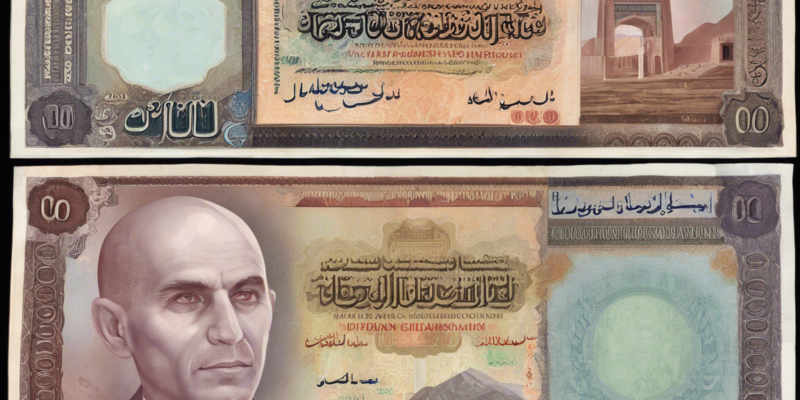The currency of Afghanistan is the Afghan afghani, symbolized as AFN. Understanding the currency system of a country is crucial for travelers, tourists, investors, and anyone conducting business in that region. In this comprehensive guide, we will delve into all aspects of the Afghan currency, providing you with a thorough understanding of its history, denominations, exchange rate, usage, and more.
A Brief History of Afghan Currency
The Afghan afghani has a rich history that dates back to 1925 when it was first introduced to replace the Afghan rupee. Throughout its history, the currency has undergone various changes due to political and economic factors. During the Soviet-Afghan War in the 1980s, the country witnessed significant destabilization of its currency. This led to the issuance of different banknotes by various factions operating in Afghanistan at the time.
After the fall of the Taliban regime in 2001, efforts were made to stabilize the currency, leading to the introduction of a new series of banknotes by the Afghan government. The current afghani banknotes feature images of historical and cultural landmarks, as well as important figures in Afghan history.
Denominations of Afghan Currency
The Afghan afghani is issued in the form of banknotes, with coins rarely seen in circulation. The banknotes are available in denominations of 1, 2, 5, 10, 20, 50, 100, 500, and 1000 afghanis. Each denomination features a unique color and size to aid in easy identification.
Exchange Rate and Value
The exchange rate of the Afghan afghani fluctuates due to various economic factors and geopolitical events. As of [current date], the exchange rate stands at approximately [exchange rate] AFN to 1 USD. It is important to check for the latest exchange rates before engaging in any financial transactions in Afghanistan.
Although the Afghan economy is largely cash-based, the use of digital payments and mobile money services is slowly gaining popularity in urban centers. When traveling to Afghanistan, it is advisable to carry a mix of cash and cards for convenience.
Tips for Handling Afghan Currency
-
Exchanging Currency: It is recommended to exchange currency at official exchange offices or banks to avoid scams and ensure you receive the correct exchange rate.
-
Carrying Cash: While credit cards are accepted in some establishments, cash is still the preferred mode of payment in Afghanistan. It is advisable to carry sufficient cash when traveling to remote areas.
-
Tipping: Tipping is common in Afghanistan, especially in restaurants and for services such as taxis. It is customary to tip around 5-10% of the total bill.
-
Counterfeit Currency: Be cautious when handling afghani banknotes, as counterfeit currency is prevalent in the region. Familiarize yourself with the security features of genuine banknotes to avoid accepting counterfeit money.
Frequently Asked Questions (FAQs)
1. What is the symbol for the Afghan afghani?
The symbol for the Afghan afghani is AFN.
2. Are US dollars accepted in Afghanistan?
While some establishments in urban areas may accept US dollars, it is advisable to use the local currency for transactions.
3. Can I exchange Afghan currency outside of Afghanistan?
It may be challenging to exchange Afghan afghanis outside of Afghanistan due to limited demand. It is best to exchange currency within the country.
4. Are there restrictions on the amount of currency I can bring into or take out of Afghanistan?
It is important to check the regulations regarding the import and export of currency for Afghanistan to ensure compliance with local laws.
5. Is it safe to carry large sums of cash in Afghanistan?
Due to security concerns, it is advisable to avoid carrying large sums of cash and to use secure methods of payment when possible.
In conclusion, understanding the nuances of Afghan currency is essential for anyone engaging in financial transactions or traveling to Afghanistan. By familiarizing yourself with the history, denominations, exchange rate, and tips for handling afghani, you can navigate the local economy with confidence and ease.

